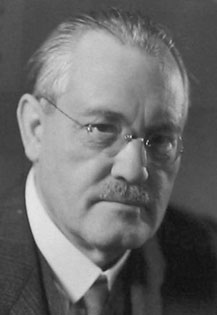<Back to Index>
- Chemist Carl Bosch, 1874
- Poet and Diplomat Juan Crisóstomo Ruiz de Nervo (Amado Nervo), 1870
- Vice President of the United States Charles Gates Dawes, 1865
PAGE SPONSOR

Carl Bosch (27 August 1874 – 26 April 1940) was a German chemist and engineer and Nobel laureate in chemistry. He was a pioneer in the field of high-pressure industrial chemistry and founder of IG Farben, at one point the world's largest chemical company.
Bosch was born in Cologne, Germany to a successful gas and plumbing supplier. His uncle Robert Bosch pioneered the development of the spark plug. Carl, trying to decide between a career in metallurgy or chemistry, studied at the Technical College of Charlottenburg (today the Technische Universität Berlin) and the University of Leipzig from 1892 – 1898.
In 1899 he took an entry level job at BASF, then Germany's largest chemical and dye firm. From 1909 until 1913 he transformed Fritz Haber's tabletop demonstration of a method to fix nitrogen using high pressure chemistry into an important industrial process to produce megatons of fertilizer and explosives. The fully developed system is called the Haber – Bosch process. After World War I Bosch extended high-pressure techniques to the production of synthetic fuel and methanol. In 1925 Bosch helped found and was the first head of IG Farben and from 1935 chairman of the board of directors. He received the Siemens - Ring in 1924 for his contributions to applied research and his support of basic research. In 1931 he was awarded the Nobel Prize in Chemistry together with Friedrich Bergius for the introduction of high pressure chemistry.
Bosch, a critic of many Nazi policies, was gradually relieved of his high positions after Hitler became chancellor, and fell into despair and alcoholism. He died in Heidelberg.
The Haber – Bosch Process today consumes more than one percent of the energy on Earth and is responsible for feeding roughly one - third of its population. On average, one-half of the nitrogen in a human body is synthetic, the product of a Haber – Bosch plant. Bosch was an ardent collector of insects, minerals, and gems. His collected meteorites and other mineral samples were loaned to Yale University, and eventually purchased by the Smithsonian. He was an amateur astronomer with a well-equipped private observatory. The asteroid 7414 Bosch was named in his honour.